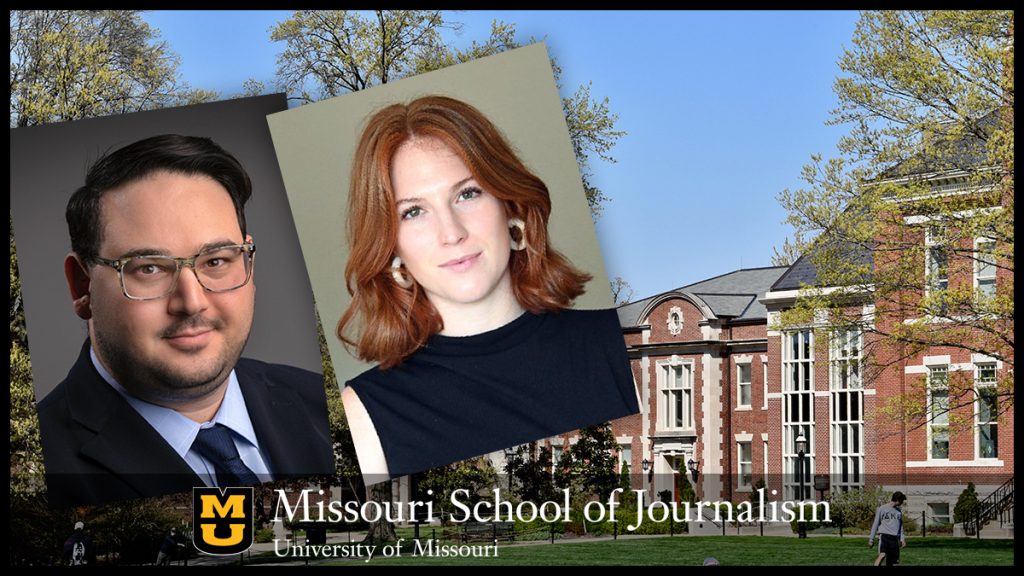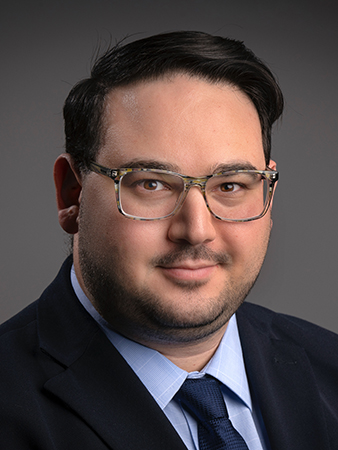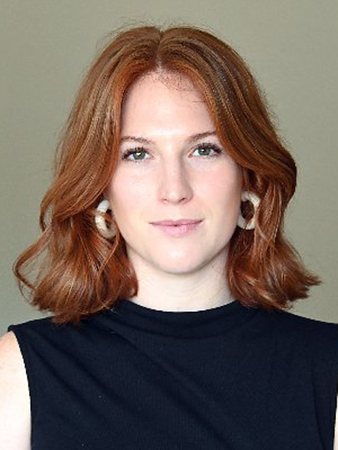Jacob Bogage and Riley Beggin land high-profile economic policy reporting roles at Washington Post

COLUMBIA, Mo. (Aug. 4, 2025) — July was an eventful month for Missouri School of Journalism alums at The Washington Post. Jacob Bogage, BJ ’19, was named the White House economic policy correspondent after previously serving in a variety of reporting roles at the storied newspaper. Soon after, The Post named Riley Beggin, MA ’17, as its new congressional economic policy correspondent.
Less than a decade after graduating from the School of Journalism, Beggin and Bogage now occupy two of The Post’s top economic policy reporting positions. That’s not all they share — both also carry degrees in history, reflecting their shared interest in deepening the present-day reality of a story with its origins in the past.
And while neither is the type to write up a five-year plan, their futures seem set for success. Read on to learn how their education at the School of Journalism continues to inform their respective ascents in the industry.
Jacob Bogage

Bogage has spent the entirety of his post-Mizzou career at the Washington Post, first as a business intern and then in a succession of reporting positions in high school sports, national sports, business and — most recently before his new role — congressional economics.
In fact, the internship and sports roles came before he earned his journalism degree in 2019, a year in which he also helped cover the Major League Baseball playoffs. The year before, he assisted in coverage of professional hockey’s Stanley Cup Finals. Though his career has since gravitated to different subject matter, he feels strongly that each new role has informed the next.
“It feels like I’ve lived many lives, and all of those lives are still relevant,” he said. “There are sports sources I still keep up with. I’m still covering the postal service, which was my first big story when I went back to business reporting. It’s all felt very additive to my new role and how I think of myself as a professional.”
Having already worked at The Post for more than 10 years in the very first stretch of his professional career, he has had to navigate the peculiar challenge of becoming a veteran of the newsroom while still earning his stripes — a challenge he has risen to, in part, because of the confidence instilled in him through his hands-on education at the School of Journalism.
“I was a business reporter because Mizzou told me I could do it,” he said. “When I was offered the business internship, I went home after the second day on the job and told my parents, ‘Can you believe this? Publicly traded companies have to tell you every quarter what their financials are.’ I was still learning.”
It wasn’t the first time he had experienced baptism by fire. Some of his earliest work exposure to journalism in college came at The Maneater, a newspaper run by students independent of the School. He described the publication as “a place where we could do very meaningful and ambitious work, even if we didn’t know how to do it.”
Then, as a sports reporter for the Columbia Missourian — the School’s digital-first community newspaper — he found himself forced to improvise in order to find the stories that others would miss. Leaving the press box during Mizzou football games in search of an interesting character or fan reaction taught him the value of the “walkaround.”
“We would go to a football game and an editor would say, ‘Do you know something else happening today where tens of thousands of people are showing up?’” he recalled. “Even if it doesn’t feel like there is news at this press conference, event, protest or whatever it might be, do I know anything else happening where so many people are showing up? No, so I needed to take my notebook out and go look for a story. It was a very important lesson in knowing where to zig when others zag.”
That lesson came in handy in the spring of 2022, when he found himself assigned to cover a mass shooting in Buffalo, New York. Not content to cover the most obvious angles of the story, he explored the community.
“The job is to write for the newspaper, but the way you accomplish that is by building relationships,” he said. “I walked around, went in the 7-Eleven to see what people were buying, talked to faith leaders. I would put my notebook away and learn about the community. I was only there for a week, but by the time I left, there were people who recognized me and were introducing me to their family and friends. A lot of the lessons I had learned at Mizzou stood out.”
Riley Beggin

Since earning her master’s degree from the School of Journalism in 2017, Beggin has gained experience in public radio, nonprofit statehouse reporting, the politics of the U.S. auto industry and Capitol Hill coverage. Most recently, she led USA Today’s congressional coverage as the senior congress and campaigns reporter.
“I’m beyond thrilled to be here,” Beggin said. “I’m really excited to dig into the specifics of economic policy within the realm of Congress in a way that helps people, and to do it with the resources, backing and collaboration of reporters and editors at The Post.”
That commitment to the public service mission of journalism was already evident during her time at Mizzou. For KBIA-FM, the School’s NPR-member radio station, she published an investigation of questionable lead testing practices in St. Louis, revealing that the city water utility was disproportionately testing service lines on the city’s south side where lead levels tend to be lower.
What could have been a straightforward piece of data journalism became something more thanks to Beggin’s embrace of the Missouri Method of hands-on learning; she worked with locals to conduct in-home water tests, enabling her to offer insights into some of the challenging realities of the testing process.
The strong feel for storytelling that she nurtured at the station remained with her even as her career became more focused on print journalism.
“One of the big things I drew from KBIA was to really think about the way you are telling a story,” Beggin said. “The characters and voices and texture of the scene — all of those elements need to be there in a story you’re reading in print.”
Other important lessons came from her time at the Missourian and from the tutelage of Mark Horvit, who recently earned the Scripps Howard Teacher of the Year Award.
“Mark Horvit’s investigative class was so amazing, and I feel like I still use every single piece of that class,” she added. “I remember he said, ‘if you’re not angry, you’re not paying attention.’ That kind of made me feel like it’s okay to have feelings in this work. And then there is the mission of investigative journalism: to serve the public, investigate the powerful. I always try to keep that in mind, especially in D.C.”
Whether performing watchdog reporting on Michigan public policy for the nonprofit Bridge Michigan or analyzing the impacts of national politics on America’s auto industry for The Detroit News, she has kept that sense of conviction close at hand.
Now, in addition to serving the public on one of journalism’s biggest stages, she also tries to pass on the benefits of her experience to the next generation of reporters by frequently speaking to students in the School’s Washington Program (like those students, her D.C. journey began with an internship. In her case, a Kaplan Fellowship at ABC News). Her message to them is to take what they learn about ethics and public service to heart.
“When you’re in the J-School, you are instilled with a lot of ideals about what journalism is and what it should be,” she said. “It is really easy to lose that drive once you’re in the ‘real world.’ My advice would be to hang onto that. The best newsrooms in America are filled with people who have hung onto that, and they want to see you succeed.”
Updated: August 4, 2025